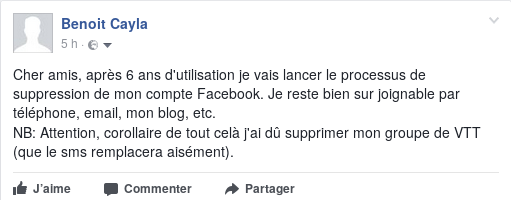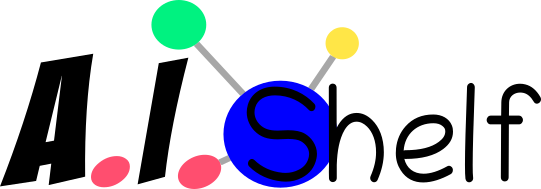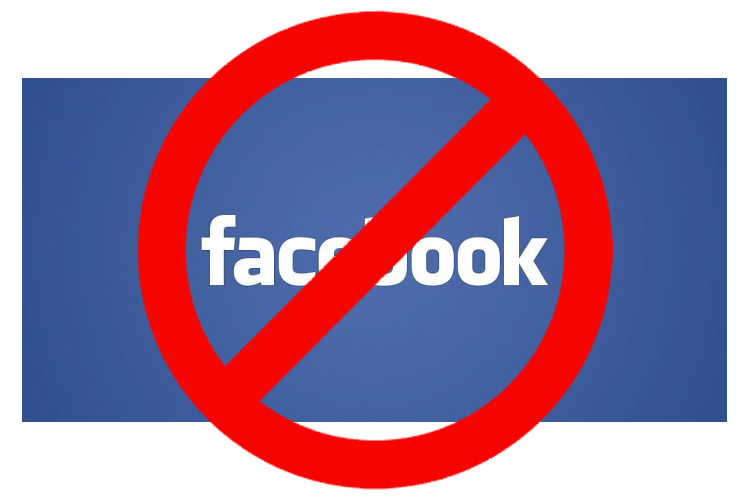Index
I am not my Facebook me!
Before explaining the reasons for my resignation from my own – personal – virtual life, I must explain to you why I went there and what my expectations were. First of all, I want to make it clear that I am not targeting anyone and that these observations are the result of real long-term thinking. I know that this post could appear to be politically incorrect and I am sincerely sorry for that, although it is in any case sincere and honest, but above all it aims to portray, even demystify the behaviors that we have in a more general facing social networks. Once again this is my own perception of social networks and of course I am open to discussing it… so please take your comments.
First of all, I’m 43 years old and I signed up for Facebook in 2011. Thin already 6 years! Working in new technologies for over 15 years, I immediately joined professional social networks. The interest seemed obvious… but I had never taken the plunge to expose my personal life on the internet until then. At the beginning, I therefore went there more out of curiosity. A new experience awaited me. And, as I told you, I like new technologies and what is more am very curious by nature. In short, there was no question that I would not “live” Facebook!
Let’s face it now, my expectations were initially kept to a minimum. I didn’t need to find anyone and I had “real” friends. In short a priori I had no need to join a personal social network, and ultimately that’s what makes the experience all the more interesting.
Once again, there was no way I wouldn’t try this trend!
So I signed up almost innocently and I must say that very gradually I got into the game of social networks.
Till today …

I just wanted now to share my findings after these 6 years of use.
First of all, let’s start with the positive
1) Access to any type of information.
This is the most interesting thing for my taste even if I really regret the RSS feeds which are gradually disappearing from sites. Basically the facebook timeline allows you to subscribe to any type of information (more or less serious) and that’s really nice.
2) Possibility of finding people lost to follow-up.
This is undoubtedly the main (initial) interest of this network and undoubtedly what makes it its greatest strength. So many people are connected to it that we can find people who have been lost for a long time… or almost, because in the Facebook universe there are a lot of people who like nicknames so that only relatives can find them. The positive point then becomes rather negative, but I would come back to it.
3) The ease of interpellation of a person in his close circle.
You have created your circle of friends (or pseudo friends) and hop you can call them quickly, you can even know if they are connected (via Messenger). Hmmm! Will you be able to hide? And to keep some privacy?
In general, it is a communication tool… effective… too much, no doubt!
Damned! My positives turn to negatives… I definitely shouldn’t be objective. Well, too bad here is what I really liked less and which pushes me to leave today.
4) make new acquaintances?
Honestly, I haven’t “tried” this aspect of the social network. But many seem to like expanding their circle of acquaintances, at least virtually. It’s not my thing, so I won’t dwell on this subject.
And here are the negatives
1) Go, I throw a stone in the pond, Facebook is clearly: the cult of the ego.
You post things that are only of interest to you and expect (unconsciously or not) “likes” in return.
More perverse, reflexes begin to develop: you “like” to be “liked” in your turn. In short, the idea of Facebook and to show that you have a great life to those around you. I got caught up in the game, it’s so simple… it even becomes an unconscious sport.
So we participate in this phenomenon.
Let’s be honest, I really played the game of:
Look at all I’m having a great time with lots of friends! Look at my new car, my new house, see I travel halfway around the world, drink great wine, etc.
In short, I also gave the illusion that each act and gesture was a great moment (and sometimes it was of course). And undoubtedly the most important these moments must be shared … supporting evidence (photos, videos). So, if you are in the process of conquering (friends, likes, etc.) you will even try to post really cool and original photos. Yes ! it must be said: our life is much better than the others not (or at least we must stand out from the crowd)?
Then I wondered why I was doing this? what did I expect? my own answer scared me.
For those who are concerned, I refer to this very interesting study which shows unequivocally that Facebook appears to have a remarkable correlation with the degree of self-esteem and the degree of narcissism.
2) The illusion of free expression.
This is probably THE reason for my goodbye to this virtual network and this point joins the previous point. In fact in Facebook you are not really yourself. Let’s be clear and direct, it probably doesn’t interest anyone that you are yourself! What is important is to show a flattering showcase of your existence. The idea is very simple: you want to show the world that your life is great, that you do great things, and that you have an amazing social circle. The worst part of all of this is that you are putting pressure on yourself.
In such a world it is obvious that your true thoughts must not go beyond the framework set and imposed by society, and therefore remain politically correct.
I have experienced this several times and it is clear that each time that I have been against the tide (for justified reasons in my opinion) it has almost turned against me. It is truly an interesting and insidious phenomenon that gradually pushes us to self-censor. Let us not forget that we are in a game (even a competition) of which will have the most beautiful life.
Personally, I recently and involuntarily disturbed this illusion of well-being that this network can provide to many. The reactions were quick and even if I was right on the merits (but the bottom, we do not care on Facebook) the simple fact of having disturbed the (virtual) public order by my truth really disturbed .
With facebook we are in the matrix, beware of those who want to play neo even involuntarily.
3) News on Facebook.
These are oriented or even diverted. I won’t talk about “fake news”, that’s not the point at all, but to get back to the previous point you have to go in your direction. We’re not going to push you around either !!! on the other hand, it is you who choose them freely… humm are you sure of that?
In short, not always very interesting or even not really high level!
I bounce back here on my initially positive point… at least that was my first impression.
Personally and before definitively closing my Facebook account, I decided to use a feed aggregator (feedly for example). Unidirectional certainly, but frankly more relevant!
4) Closed-mindedness
A particularly perverse point linked to our own use of this network and into which we systematically fall: “The burial in one’s own circles of thoughts” and therefore the lack of openness that is created. To put it simply, we choose our centers of interest … we do not logically choose what can bother us and confront us with the slightest opposition. In short, we gradually lock ourselves in, at least we let ourselves be locked up (because Facebook helps us to do this) in our way of seeing things. Worse we will eject those who think differently!
How to question yourself? think beyond our diagrams if we are in front of a mirror?
If you are followers of these social networks, ask yourself the following question: are you subscribed to user feeds or sites that are opposed to your ideas? it is unlikely and nothing will replace in my opinion a meeting at the corner of a bar. This part of mystery and discovery that you have in front of the other, because you do not know what they think, makes you in a state of openness. This is unfortunately not the case on social networks. Quite the contrary.
5) This network (or rather this type of network) pushes us to a certain form of voyeurism
Once again this is not purely facebook’s fault. This reflex is human but the tool facilitates us and makes it all natural so that we can spy without even giving an account.
What is X doing? is it connected? Why did he say that? Here he is in Paris and does not tell me.
The list is long, the consequences sometimes dramatic. Obviously we will think of the husband who will spy on his wife, or the parents who will try to spy on their children, etc.
This use has, moreover, grown to such an extent that counter-attack strategies have been devised. Our children do not hesitate to give us a fake Facebook account in which they will show us what we want to see … their real account (the one they give to their friends) being almost anonymous (in general it is their name with a small variant that makes it untraceable via a strict search). In short, I play appearances becomes complicated in order to disturb the tracks and thus hide. But can we hide indefinitely when we want to show ourselves? Obviously not… so we go from Facebook to Snapchat! and the little game begins again …
6) We are in fact only judged on appearances
This is one of the other side of the coin. You expose yourself, basically you expect “likes”! This voluntary exhibition means that you are judged by the appearance you give! let’s be clear, to believe otherwise is to hide the face. It is therefore necessary to prepare for it because the concern is that you will not be judged on yourself but on your virtual self. This is where it gets tough since it’s not really you. But it should go well because it’s your dream you that you are going to exhibit, phew!
On the other hand, it is rather logical: we are in a virtual network. We cannot either throw stones only at Facebook because it is a concern that we can easily generalize on the internet. However, the ease of use of this network means that the phenomenon is multiplied or even diverted.
Why hijacked? well it is a concern which is not specific to social networks but rather to the internet in general. Indeed the internet facilitates communication, it facilitates it perhaps even too much. So that you express your thoughts directly in writing. Unfortunately the people who will read your texts are not next to you. they don’t benefit from the intonation, context and expressions you give. It is therefore very likely that what you say will be interpreted differently depending on the person (or even the person’s state of mind) reading you.
So beware of misunderstandings, misunderstandings… This phenomenon is true when writing email but is even more true when speaking on one’s wall. It is indeed quick and simple, almost like a thought and that is the whole danger of this type of tool.
Gradually and insidiously so it becomes difficult to distinguish between things. Watch out for butterfly effects!
Paradoxically, this problem is reduced through the use of chat (messenger). Why ? very simply because in a chat you are in a synchronous mode of communication (unlike mail or expression via a wall which is asynchronous). Let me explain when we chat, we are in direct communication with the other (or others), each intervention aspires to an answer. If we are not misunderstood or if we misunderstand what the other means, it is easy to question him and therefore to better understand his state of mind. This is not the case with the wall where once something is expressed it does not necessarily imply reactions.
To sum up, let’s not forget that this virtual world does not exist… we tend to forget it so quickly! If you decide to persevere on Facebook you will have to protect yourself. So you don’t have to be exactly you, otherwise it won’t appeal to everyone … that’s really good, it’s the unacknowledged goal of this network
7) Ouch, it’s gonna be nasty (but it has to be said) we’re just products for Facebook.
Obviously we think of the various and numerous targeted advertisements. But it doesn’t just stop at those targeted advertising versus previous research you might have done. No, it goes further through the use of games and other facebook applications which are only intended to recover your personal and intimate information.
You are an object because nothing is free even less on Facebook.
For information, I refer to this article which informs you of the value of your personal data kindly offered to Facebook
I pass of course the rotten (but funny) tests and without any foundation which ask you casually for the rights of consultation of your profile to know if you are rather selfish, friendly or otherwise.
In short, nothing is innocent on Facebook.
8) Facebook is an addicting tool… so be careful!
At the end of 2012, a very serious study from the University of Chicago also showed that this social network is more addictive than work, sex, alcohol and cigarettes. The survey was carried out among subjects aged 18 to 85. The results are frightening but revealing. So make your choice
How many times have I seen people at parties be riveted on facebook. They no longer lived in the present moment… but on the other hand on the network they were having a great time!
9) the shallot race
I have already mentioned this point (number 1) but I wanted to add it to my list. I find that it is a process which from a psycholic point of view is very interesting and in which we all fall: the like! we see articles that we think are quite nice or that in our opinion deserve attention: Like. Our friends post an article: Like! in short, you have to like because it is the concept of the network.
Of course these likes are important because the more likes you have the livelier your social life is, right? in the same way, the more friends you have the more important you are… the evil pushes us even to want to add all those that we meet in your circle. Hello the quality of these new friendships.
If these indicators do not add anything – except the impression that you have an important circle of knowledge – they are nonetheless dangerous. Especially for young people who now measure themselves with these elements. Says a high school student:
“This virtual world degrades the notion of friendship with its numbers. If you don’t have more than 300 friends, you’re nothing, you’re not “popular”… how many times have we been told or made to feel. “
10) To conclude… frankly, we are wasting our time.
Okay, that’s also the goal too, but I find that this network (in high doses) makes us stupid because we become sheep who play (insidiously) I hypocritical game that is requested.
Basically, and for fans of the Wachowski brothers: We are in the Matrix, the only difference is that we are perfectly aware of it.
11) My data belongs to me
And then beyond the “philosophical” aspects, I don’t want to give my data to Facebook for free. My data, my life quite simply belongs to me so when you know that the business of Facebook is to exploit and resell all your data… it makes you think!
Conclusion
11 against 3, so it would seem that there is no real suspense. Goodbye then Facebook.
I sincerely hope that no one will take this post badly because that was not the point of this reflection. On the contrary, from my own experience I have tried to build the most objective opinion possible about the use we all make of this social network. Indeed, if this reflection seems directly directed against Facebook, it is especially directed against the use that we make of it.
I wondered for a moment if I was going to just deactivate my account, or even delete it and create another one that I will use just for advisory purposes … but I think it’s really illusory – or really, really hard – to believe that one can enter the matrix without participating in it. Unfortunately, and to this day I see no other solution than virtual sepuku and therefore the permanent deletion of my Facebook account.
So I regain my real freedom, I leave (or enter 😉 the burrow and leave the womb… but how do I get out correctly? Ouch it does not seem so simple …





